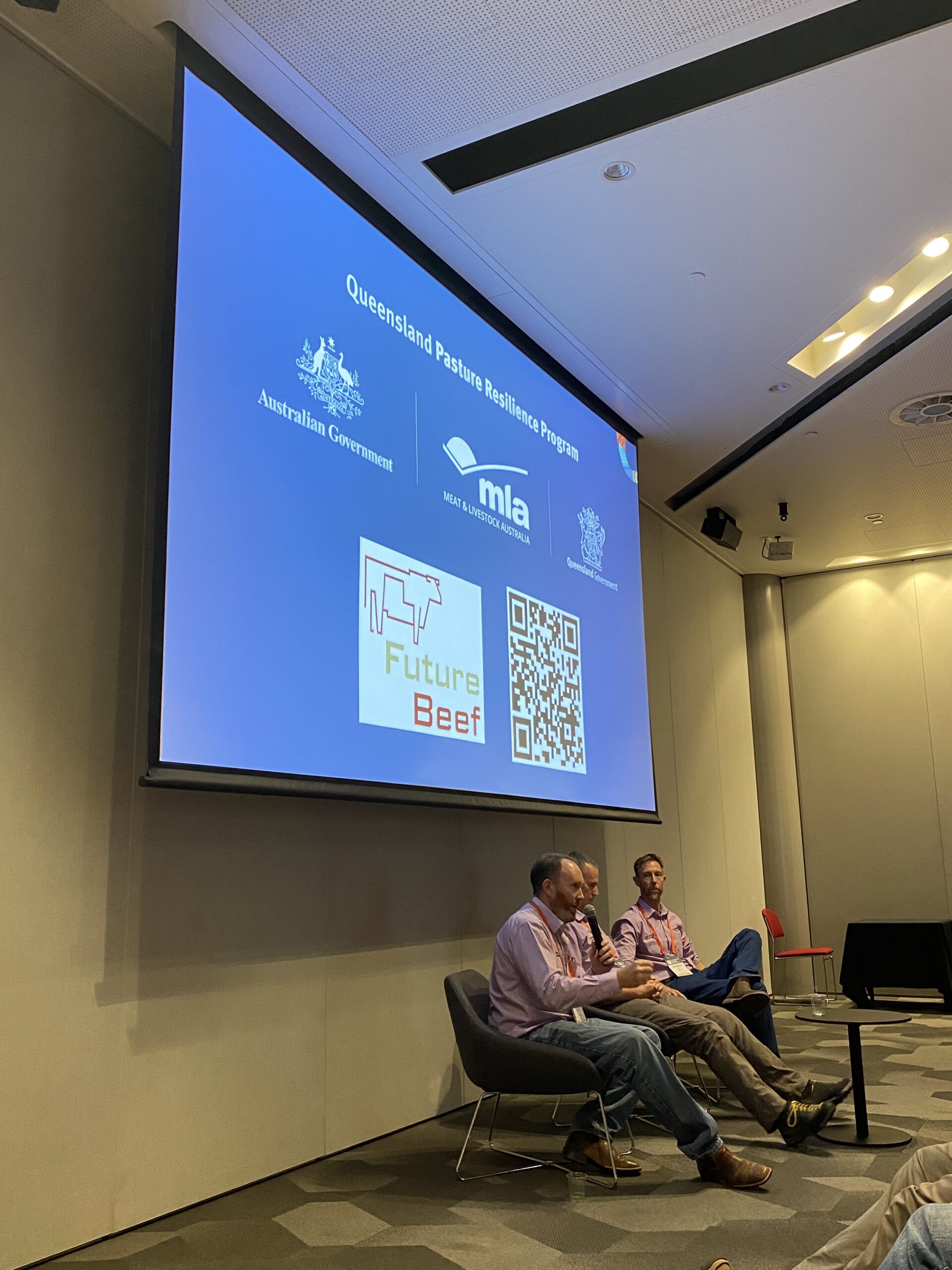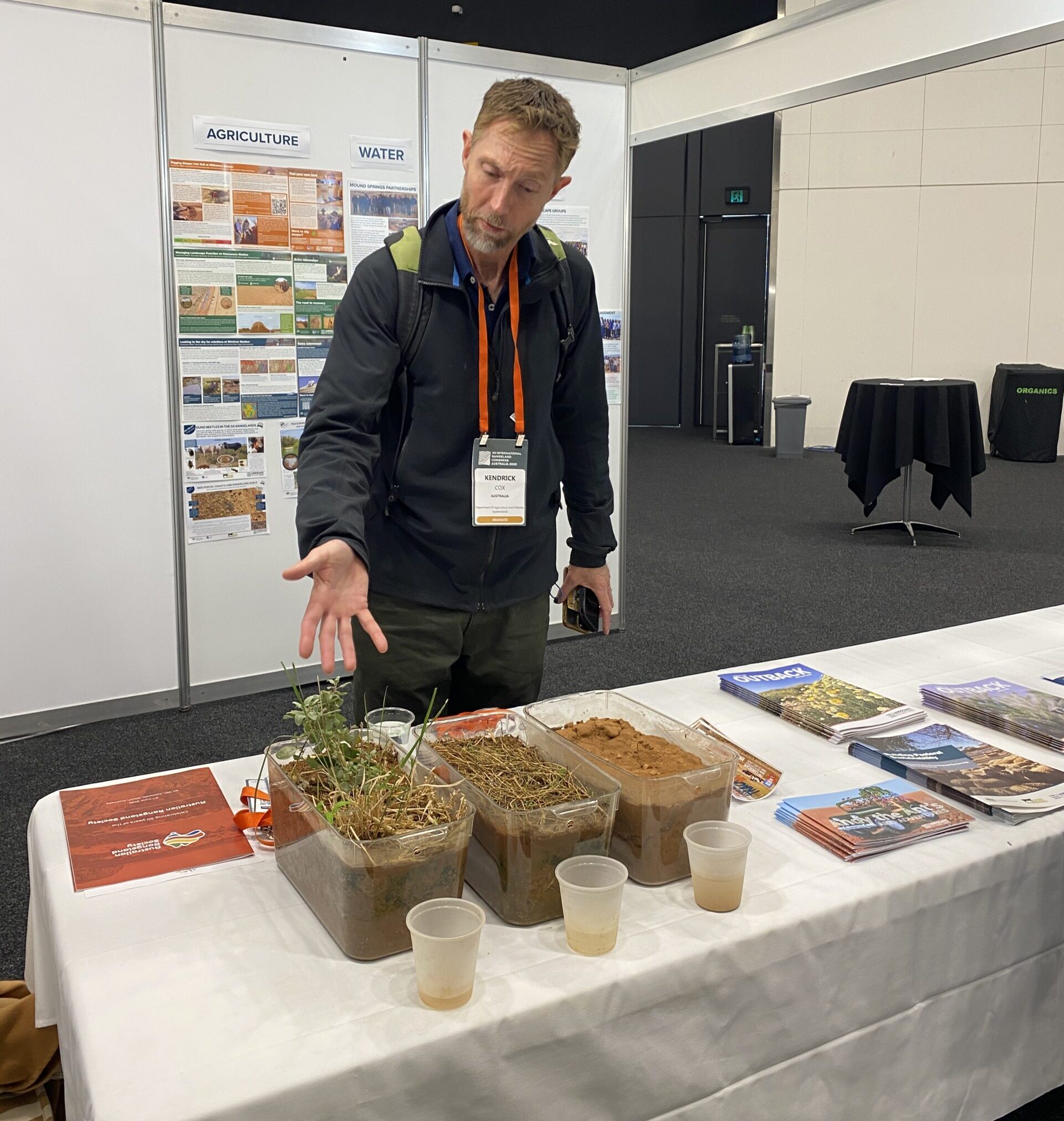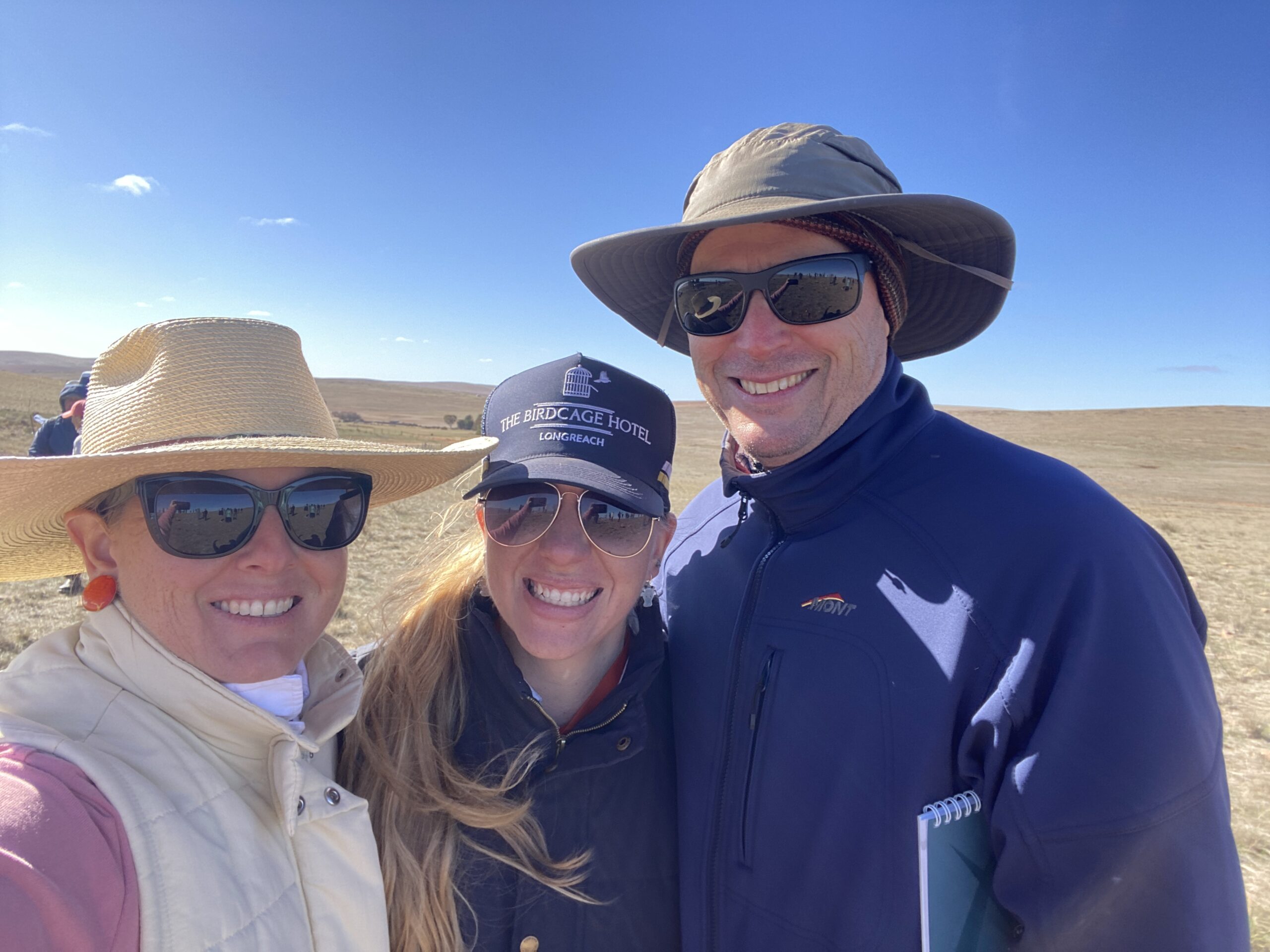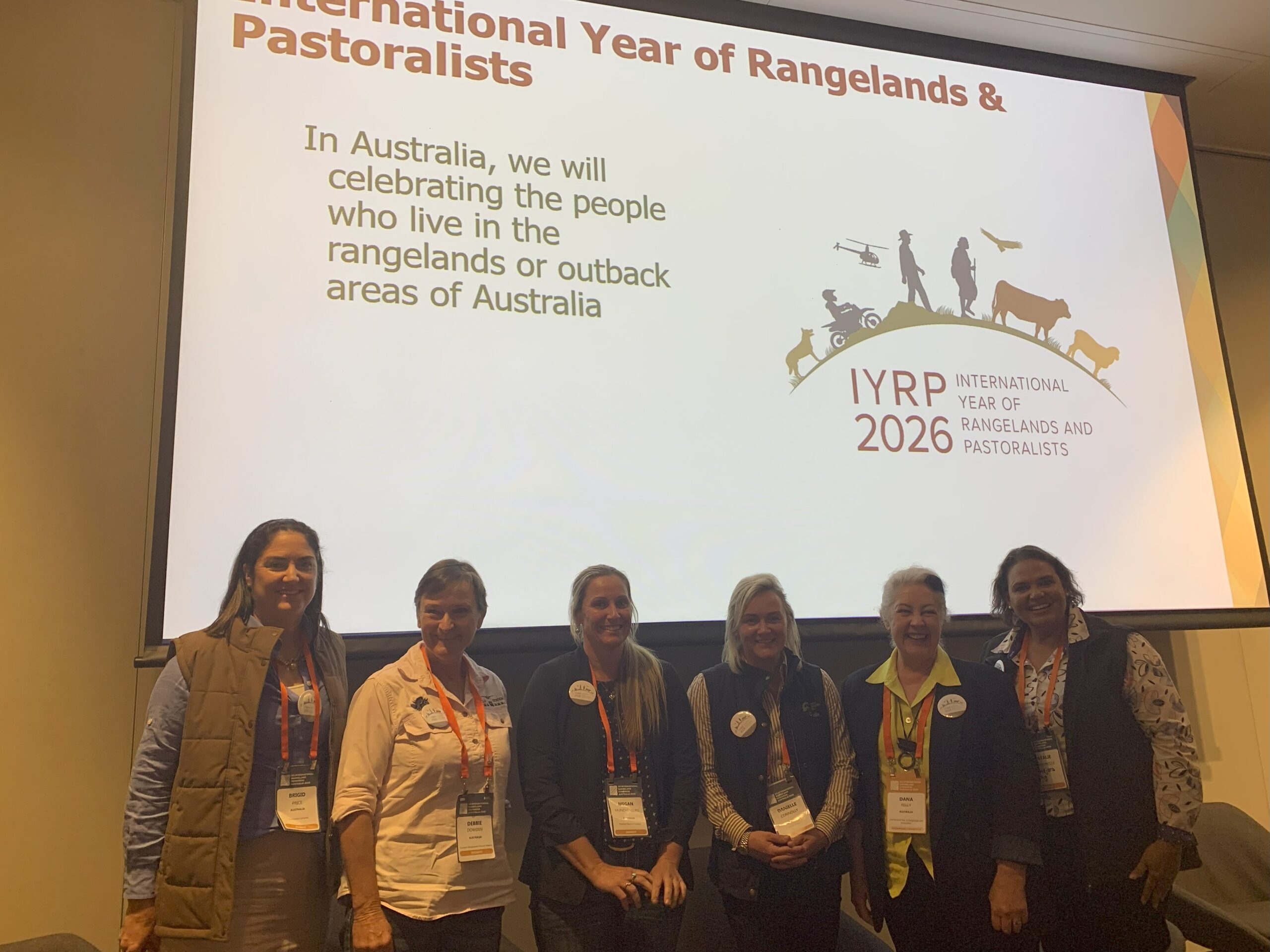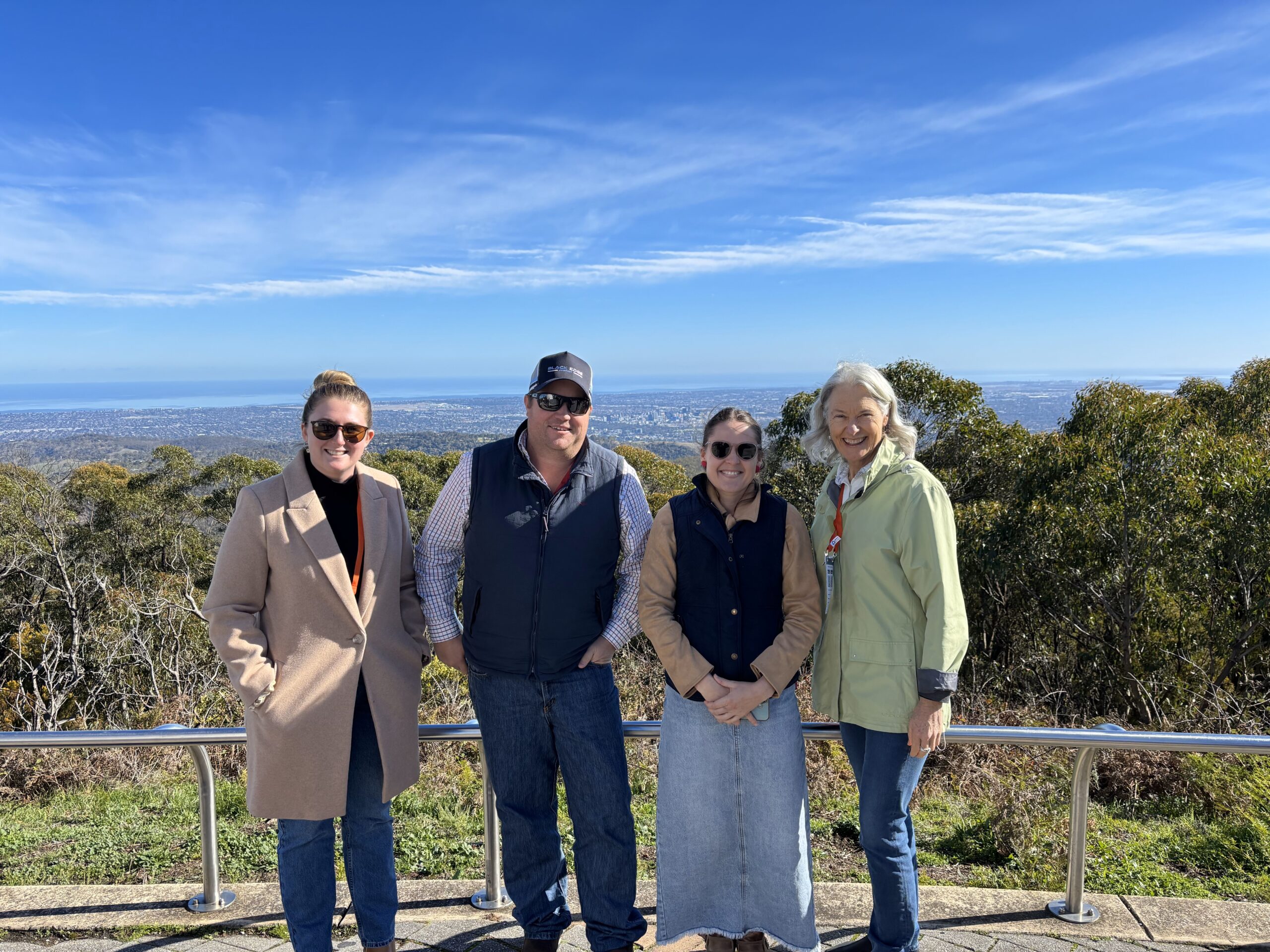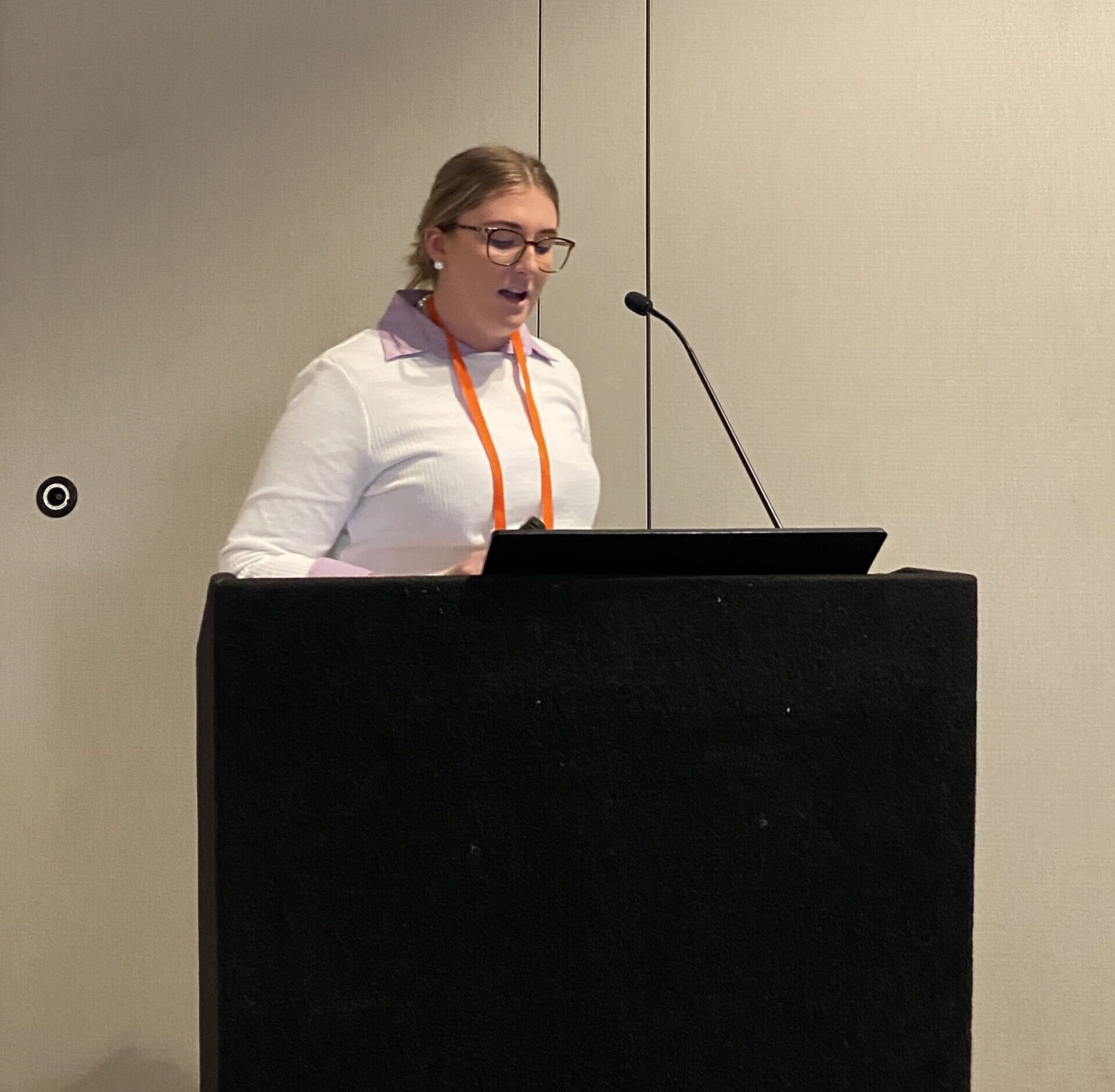DPI research on the world stage at the International Rangelands Congress

Watch here: DPI presentations from the International Rangelands Congress
Department of Primary Industries (DPI) scientists and extension officers from across Queensland presented at the XII International Rangelands Congress (IRC) held in Adelaide from 2-6 June 2025. The congress was attended by 725 delegates from 48 countries.
The IRC is held every four years in different locations around the world and the last congress hosted by Australia was in Townsville in 1999. The event includes keynote speakers, concurrent sessions, posters, pre-congress interstate study tours, mid-congress local field tours and workshop sessions.
Rangelands systems make up 50% of the Earth’s land area and are important for many uses including high-value cropping, grazing, subsistence farming and conservation. Globally the condition of rangelands is declining which is significantly impacting people’s livelihoods. The theme of IRC2025 was Working together for our global rangelands future and keynote speakers addressed all aspects of this theme. There were presentations on: the stewardship of rangelands by everyone from herder farmers in Mongolia to ‘modern’ farmers in Australia to Indigenous people around the world, transdisciplinary research that intertwines ecological science with social science, and using big data and agtech tools to manage and monitor rangelands.
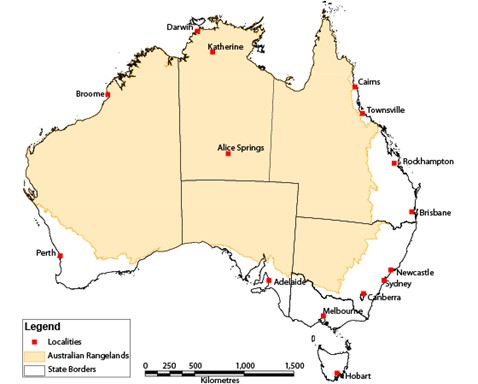
Image produced by: Environmental Resources Information Network (ERIN) © Commonwealth of Australia, November 2005
Eighty-one percent of Australia’s land area is rangelands and much of the DPI’s research and extension is aimed at understanding these systems and assisting the producers who manage them in Queensland. DPI staff from across the state wrote 25 papers on their work, which were published in the proceedings of the IRC2025. 15 staff attended the congress in Adelaide to present 18 of these papers.
Eight papers featured in a Queensland Pasture Resilience Program (QPRP) -hosted session called Developing and maintaining productive and profitable pastures in the tropics and subtropics of Queensland, Australia. This session was well attended with lots of discussion from the audience. The presentations summarised the breadth of QPRP work across sown pastures, grazing management and producer engagement.
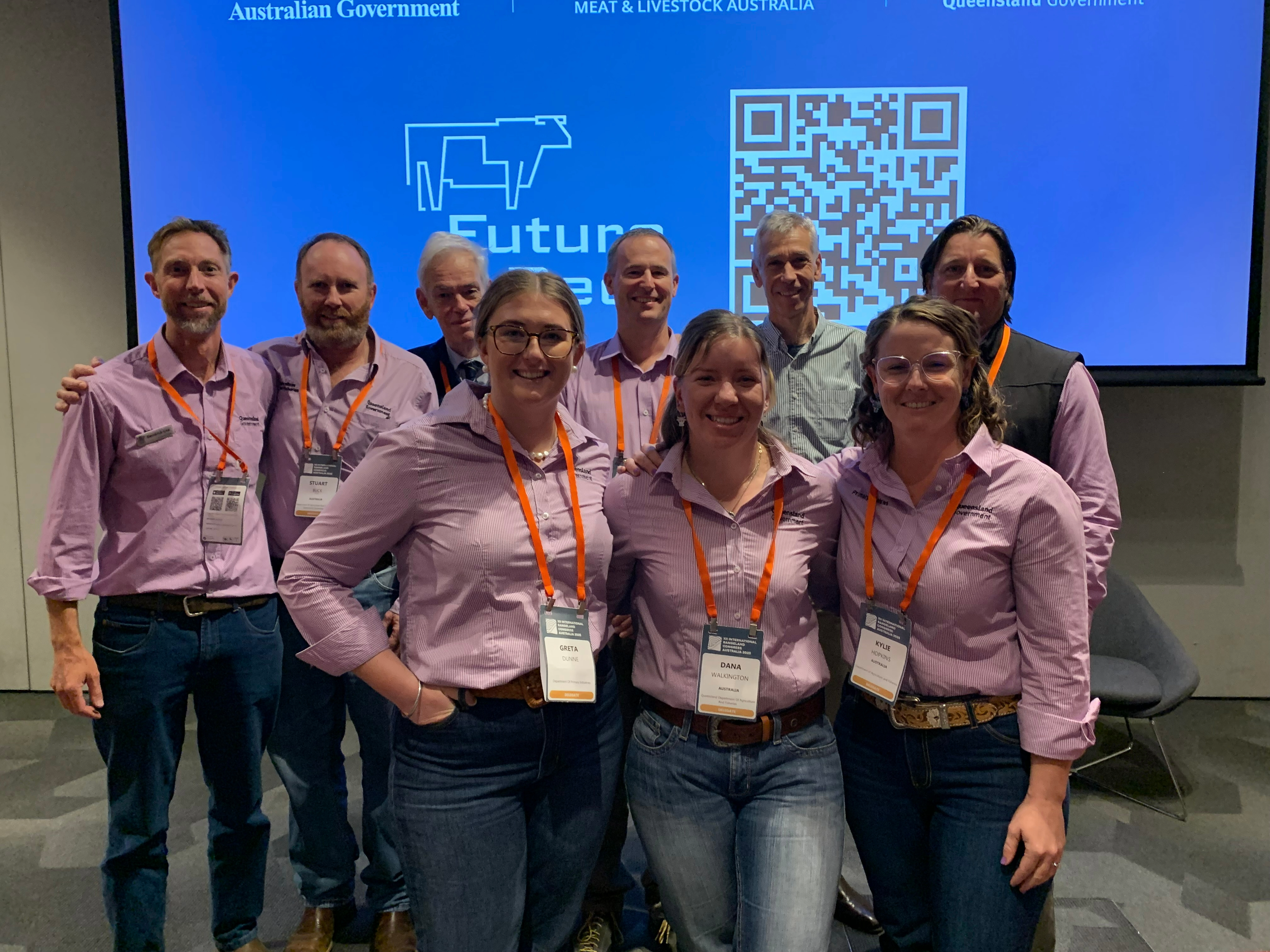
The Congress provided a great networking opportunity with research and extension practitioners from other organisations, departments, states, and territories (e.g. MLA, Universities, NRM groups, etc ) plus past DPI colleagues like Bob Shepherd, Jenny Milson, Kieren Smith, Joe O’Reagain, just to name a few.
It was also an ideal opportunity to connect with scientists from around the world to discuss topics such as integrating rangeland ecology into management, managing risk – climate and other system shocks and trends, multi-functional land use in rangelands, livestock production systems in a world of changing drivers, and incorporating traditional knowledge for more enduring rangeland outcomes.
Travel to IRC for staff in the hosted session, was funded through the Queensland Pasture Resilience Program which is a partnership between the Department of Primary Industries, Meat & Livestock Australia and the Australian Government through the MLA Donor Company.
Please enjoy some photos below from around the congress, provided by DPI staff.
